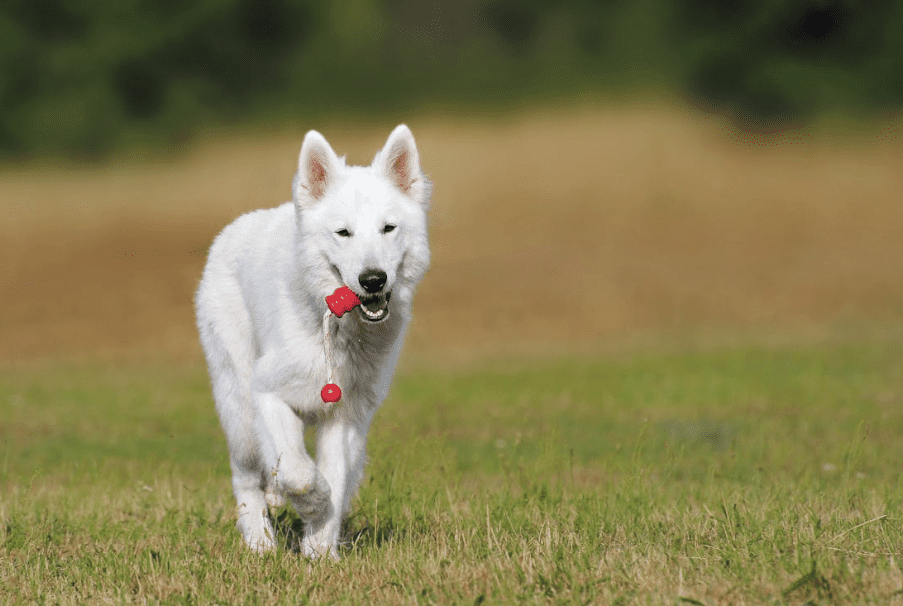
What Puppies Need - Nutrition Tips for Growing Dogs
Share
It's imperative for you to understand that proper nutrition plays a pivotal role in your puppy's development and overall health. Young dogs require a balanced diet rich in proteins, carbohydrates, and fats to support their growing bodies and active lifestyles. You must be cautious about the foods you choose, as some can be harmful, such as chocolate or grapes. Additionally, ensuring your puppy stays hydrated is vital for their growth and energy. This guide will provide you with the necessary tips to create a nourishing environment for your furry friend.

Key Takeaways:
- Balanced Diet: Growing puppies require a well-rounded diet that includes proteins, fats, vitamins, and minerals for healthy development.
- Age-Appropriate Food: Select puppy food designed specifically for their age to meet their nutritional needs as they grow.
- Hydration: Ensure puppies have access to fresh water at all times to support their overall health and aid digestion.
Understanding Puppy Nutrition
While it may seem overwhelming at first, understanding puppy nutrition is necessary for ensuring your furry friend grows up healthy and strong. As a pet owner, you have the responsibility to provide a balanced diet that meets the specific needs of your puppy. Puppies have unique nutritional requirements compared to adult dogs, and these must be addressed to support their rapid growth and development. Making informed choices about their diet will not only help promote a healthy weight but also contribute to their overall well-being and vitality.
Essential Nutrients
At the heart of puppy nutrition are the necessary nutrients that your growing dog needs. These nutrients include proteins, fats, carbohydrates, vitamins, and minerals. Proteins provide the building blocks for strong muscles and tissues, while fats supply concentrated energy and help maintain healthy skin and coat. Carbohydrates serve as a source of energy and are important for healthy digestion. Additionally, vitamins and minerals play critical roles in various bodily functions, including bone development and immune system support.
Importance of Balanced Diet
Among the many aspects of puppy care, understanding the importance of a balanced diet cannot be overstated. A diet that lacks balance can lead to serious health issues such as malnutrition, obesity, and developmental disorders. Puppies require a diet specifically formulated for their growth stages to ensure they receive the right proportions of nutrients. A balanced diet supports not just physical growth but also cognitive development and the strengthening of the immune system, which is vital for their protection against diseases.
In addition, providing a balanced diet can enhance your puppy's energy levels, making them more playful and alert. You want your puppy to thrive, and a well-rounded diet will ensure they have the strength and endurance to explore their world. Keep an eye on the nutritional contents of their food, and consider consulting with a veterinarian to choose the best options tailored to your puppy's breed, age, and activity level. By prioritizing balanced nutrition, you're setting your puppy up for a long, happy, and healthy life.
Managing your dog's weight is essential for their well-being—explore practical diet and exercise tips to tackle obesity in dogs in this comprehensive guide.

Types of Puppy Food
One important aspect of ensuring your puppy's health is choosing the right type of food. The main types of puppy food available include:
- Dry kibble
- Wet food
- Home-cooked meals
- Commercial products
- Raw diets
Each type offers unique benefits and potential drawbacks, which you should weigh carefully based on your dog's specific needs. For more information, you can check out this [Feeding Your Puppy for Optimal Nutrition and Wellness](https://www.hainesroadanimalhospital.com/blog/feeding-your-puppy-for-optimal-nutrition-and-wellness/) resource. Knowing what best supports your growing puppy's health can enhance their well-being and development.
| Type of Puppy Food | Benefits |
|---|---|
| Dry kibble | Convenient, helps dental health |
| Wet food | High moisture content, flavorful |
| Home-cooked meals | Fresh ingredients, customizable |
| Commercial products | Convenient, vet-recommended |
| Raw diets | Natural diet, potential health benefits |
Dry Kibble vs. Wet Food
For many pet owners, one of the first questions is whether to choose dry kibble or wet food. Dry kibble is often more economical and can be left out for longer periods without spoiling. It also has the bonus of helping maintain dental health by reducing plaque buildup. On the other hand, wet food is typically more palatable and contains higher moisture content which can be particularly beneficial for puppies that may not drink enough water.
Moreover, you might find that mixing both dry and wet food can provide a balanced diet, catering to nutritional diversity and flavor preferences. It's important to ensure that whichever option you choose meets the standards set by feeding guidelines appropriate for your puppy's age and breed.
Home-Cooked Meals vs. Commercial Products
Around the idea of feeding your puppy, many owners consider the benefits of home-cooked meals versus commercial products. Home-cooked meals can provide a sense of control over your puppy's diet, allowing you to choose whole, fresh ingredients that avoid preservatives. However, preparing these meals requires knowledge of canine nutrition to ensure that you're including all the necessary vitamins and minerals.
Fuel your Labrador's active lifestyle with the right nutrition—discover essential diet tips for feeding a Labrador in this detailed guide.
On the other hand, commercial products are specifically formulated to meet the nutritional needs of puppies. Many vet-recommended options are proven to support healthy growth and development. If you decide to go the home-cooked route, it's advisable to consult a veterinarian to ensure you're not missing any important nutrients. Also, be cautious of certain human foods that can be harmful, such as onions, grapes, and chocolate. Implementing a balanced approach will help ensure optimal nutrition for your thriving puppy.
Feeding Guidelines
The right feeding regimen will support their development and overall health. You'll need to focus on high-quality puppy food that is specifically formulated to provide the necessary nutrients for their growth stage. Ensure that you check the packaging for recommendations based on your puppy's age, size, and breed, as these factors significantly influence feeding requirements.
Age-Based Feeding Schedules
Age-based feeding schedules play a significant role in ensuring your puppy receives the right amount of nutrition at the appropriate times. Puppies typically require more frequent meals than adult dogs. For instance, younger puppies aged 4 to 6 months usually benefit from about three to four meals daily, while those approaching 6 months may transition to two meals a day. As your dog matures, altering the feeding schedule to coincide with their age will aid in regulating their energy levels and maintaining a healthy weight.
Portion Control and Monitoring Weight
To maintain optimal health and prevent obesity, practicing portion control and consistently monitoring your puppy's weight is vital. Refer to the feeding guidelines on your puppy food packaging to measure the recommended serving sizes based on their age and breed. Regular weigh-ins at the vet can help track their growth and ensure they're developing correctly. If you notice any discomfort, lethargy, or sudden weight changes, consult with your veterinarian immediately.
The quality of your puppy's diet can profoundly impact their health. Feeding your puppy the right portions while keeping a close eye on their weight helps ensure they grow at a healthy rate. Watch for signs of overfeeding, such as a bulging belly or difficulty in movement, as this can lead to serious health issues. You'll want to maintain balanced nutrition that includes proper protein, fats, and carbohydrates while avoiding excessive treats that may lead to weight gain. Adopting these practices can set the foundation for a long, healthy life filled with energy and vitality.

Supplements and Vitamins
Now, as a responsible pet owner, it's important to understand the role that supplements and vitamins can play in your puppy's growth and overall health. While a balanced diet should provide most of the vital nutrients, several factors might necessitate the addition of supplements to your dog's regimen. This can include specific health concerns, dietary restrictions, or simply the desire to enhance your puppy's vitality and support their developmental needs.
Always consult your veterinarian before making changes to your puppy's nutrition to ensure you are making informed decisions based on your puppy's individual needs. For expert advice at your convenience, you can also rely on DrPashu to get tailored recommendations for your puppy's health and well-being.
When to Consider Supplements
For some puppies, particularly those with special health needs or those that are undergoing rapid growth, supplements can be beneficial. When your veterinarian identifies deficiencies in your puppy's diet or health concerns, they may recommend introducing certain supplements. Puppies that are pregnant or nursing may also have increased nutritional needs that require supplementation to ensure both mother and offspring are receiving adequate nutrients.
Key Vitamins for Growing Dogs
Against this backdrop, there are several key vitamins vital for your growing dog. Vitamins A, D, E, and K, known as fat-soluble vitamins, are crucial for vision, bone health, immune support, and blood clotting, respectively. Water-soluble vitamins like B-complex and C help with energy metabolism, skin and coat health, and repairing bodily tissues. Each of these vitamins plays a unique role in your puppy's development and overall health, and understanding these can help you make better nutritional choices.
The incorporation of vitamins and supplements into your puppy's diet can significantly enhance their growth and well-being. However, it's vital to not over-supplement, as excessive intake of certain vitamins can lead to toxicity and adverse effects. Aim for a well-rounded diet that works in tandem with any necessary supplements as prescribed by your veterinarian, ensuring your puppy can grow strong and healthy.
Common Feeding Mistakes
Despite your best intentions, it's easy to make mistakes when feeding your puppy that can have lasting effects on their health. One of the most prevalent issues is overfeeding, which can lead to obesity. While you may think that giving your puppy extra food will help them grow faster and healthier, it can actually cause them to gain excessive weight, putting them at risk for a variety of health problems, including joint issues and heart disease. It's crucial to follow the recommended feeding guidelines provided by your veterinarian and ensure that your puppy is receiving the appropriate portion size based on their age, breed, and activity level.
Overfeeding and Obesity
Beside the concern of overfeeding, it's vital to recognize how frequent feeding of high-calorie treats can contribute to this problem. When you're tempted to offer those delicious snacks as a reward or comfort, it's easy to overlook the cumulative effect on your puppy's weight. It's crucial to keep track of their daily caloric intake, combining both meals and treats, to ensure they remain healthy and active. Transforming your puppy into a lean, muscular companion requires careful monitoring of their diet and making informed choices when it comes to treats.
Unsafe Human Foods
Behind the issue of overfeeding is another dangerous error that many puppy owners make: giving their pets unsafe human foods. While it may appear harmless to share your leftovers or snacks, many common ingredients found in human food can be toxic to dogs. Foods like chocolate, onions, garlic, grapes, and avocados should never be fed to your puppy as they can cause serious health problems, including gastrointestinal distress or even organ failure. Always consult your veterinarian for a list of foods that are safe for your puppy to consume.
Consequently, you should be very cautious about what you allow your puppy to eat. Instead of sharing human foods, provide them with specially formulated puppy food that meets their nutritional needs. If you want to offer treats, opt for dog-specific snacks or fresh fruits and vegetables that are safe for canine consumption, such as carrots or blueberries. By prioritizing their health and wellbeing through proper nutrition, you can ensure your puppy becomes a vibrant and strong adult dog.
Special Considerations
Once again, catering to your puppy's needs goes beyond just providing general nutrition guidelines. While you may have a clear understanding of the important nutrients that all growing dogs require, there are specific considerations that can greatly affect the overall health and well-being of your pet. Factors such as breed, activity level, and any existing health issues can shape the nutritional framework you need to follow. By taking these aspects into account, you can ensure that your puppy receives the right diet for their unique circumstances, allowing them to thrive as they grow.
Breed-Specific Nutritional Needs
BreedSpecific nutritional needs can play a significant role in your puppy's development. Different breeds can have varying requirements for proteins, fats, and carbohydrates based on their size, metabolism, and energy levels. For instance, large breeds like Great Danes need a diet rich in high-quality proteins but lower in calcium to prevent conditions like hip dysplasia, while smaller breeds may require higher fat content to meet their energy needs. It's important to research your puppy's breed and consult with your veterinarian to create an optimized diet tailored to their specific needs, ensuring they grow up healthy and strong.
Health Issues and Dietary Restrictions
At some point during your puppy's growth, you may encounter health issues or specific dietary restrictions that require immediate attention. Some breeds are predisposed to certain conditions, such as allergies or obesity, which can directly influence the type of food they should consume. Therefore, you must work closely with your veterinarian to identify any underlying health concerns and adapt their nutrition accordingly, ensuring your furry friend receives a balanced diet that accommodates their unique challenges.
Considering possible health issues or dietary restrictions can help you make informed choices about your puppy's food. If your dog suffers from food allergies, you may need to eliminate specific ingredients and opt for hypoallergenic diets. Similarly, if your puppy is prone to obesity, you should look for lower-calorie options without sacrificing important nutrients. Always prioritize high-quality, digestible ingredients to promote optimal health and consult with your veterinarian for tailored advice regarding your puppy's dietary needs.
To wrap up
The journey of raising a puppy requires you to pay close attention to important nutritional needs. A balanced diet rich in proteins, healthy fats, and carbohydrates is vital for their growth and overall health. You should prioritize high-quality puppy food that meets their specific life stage requirements. Incorporating appropriate amounts of vitamins and minerals will further support their developing bodies, helping you ensure that they thrive in these formative months.
Your dedication to understanding your puppy's nutritional needs will have a lasting impact on their quality of life. It's also beneficial to consult with your veterinarian to tailor a diet plan that suits your puppy's individual needs. By making informed choices about their nutrition, you are setting the foundation for a healthy and energetic companion who will bond with you for years to come.
Frequently Asked Questions
What type of food is best for puppies?
A: Puppies require a diet that is rich in protein, fat, vitamins, and minerals to support their rapid growth and development. Look for high-quality commercial puppy food that meets the guidelines set by the Association of American Feed Control Officials (AAFCO). These foods typically contain a balance of meat, grains, and vegetables, especially formulated to provide the necessary nutrients for young dogs.
How often should I feed my puppy?
A: The feeding schedule for puppies usually involves three to four meals a day. This frequent feeding helps to keep their energy levels stable and supports healthy digestion. As they reach around six months of age, you can gradually transition to two meals per day. Always ensure that fresh water is available at all times to keep your puppy hydrated.
Should I consider a specific diet for my puppy based on their breed?
A: Yes, different breeds can have varying nutritional requirements depending on their size and metabolism. Larger breeds may benefit from a diet formulated to support slower growth to reduce the risk of skeletal issues, while small breeds may need a higher calorie concentration due to their fast metabolism. Consulting with your veterinarian can help you choose the best diet for your puppy based on their breed and individual needs.
Can I give my puppy human food?
A: While some human foods are safe for puppies, many can be harmful. Foods like cooked lean meats, fruits, and vegetables can be healthy treats in moderation. However, you should avoid feeding your puppy foods that are toxic to dogs, such as chocolate, grapes, onions, and garlic. Always check with your veterinarian before introducing new foods to their diet to ensure they are safe and appropriate.
How can I tell if my puppy is getting the right nutrition?
A: There are several signs that indicate your puppy is receiving adequate nutrition. Healthy puppies usually have shiny coats, bright eyes, and good energy levels. You should also observe consistent growth and a healthy body condition where their ribs can be felt without being visible. Regular veterinary check-ups can help monitor their growth and confirm that they are thriving on their diet.
